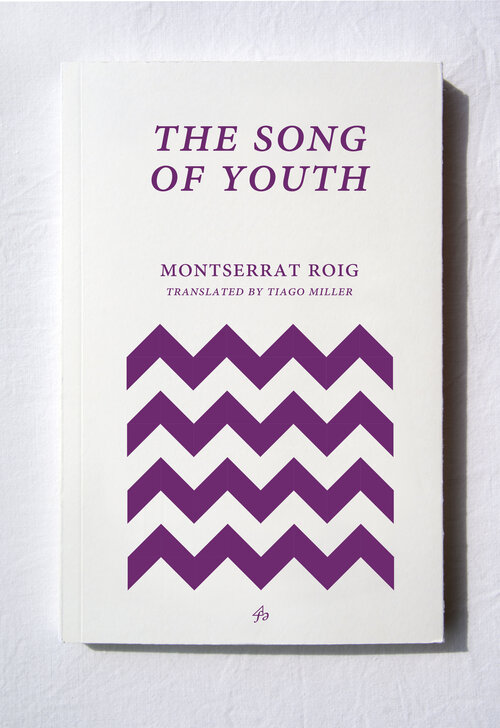Review of Montserrat Roig, The Song of Youth (Translated by Tiago Miller), Fum d’Estampa Press

For any woman growing up under the dictatorship of General Francesco Franco, victor of the Spanish Civil War, they were made very aware that they were second class citizens denied basic rights, such as divorce or mixed education, rights granted by the Republic Franco overthrew.
For a Catalan woman there was a double oppression. Catalonia not only suffered the same repression meted out by the victorious Francoists as elsewhere in Spain, but their language was banned from public use. When Barcelona fell Catalan books, magazines and newspapers were no longer allowed to publish.
Montserrat Roig. Born Barcelona in 1946, was a Catalan feminist, for a while a member of the Catalan Communist Party and as a young woman in the final years of the Franco dictatorship took part in the ant-fascist resistance. She was one of 300 Catalan professionals, intellectuals and artists, who for three days in December 1971 assembled at the Monastery of Montserrat outside Barcelona in order to protest the military Court Martial imposed on sixteen Basque activists, supporters and members of the guerrilla group, ETA.
Her The Song of Youth (translated by Tiago Miller and published in English for the first time by Fum d’Estampa), is a collection of eight short stories set in Catalonia during the dictatorship or just afterwards when its long shadow still lay over the land.
The first story, the Song of Youth, which gives its title to this volume, addresses issues of love and of aging, issues which reappear throughout these stories. A woman, Zelda, lies in a hospital bed, unable to move, listening to the patient next to her, in a bed behind a screen dying. The woman is regarded by her nurses as a nuisance.

A young doctor who comes round the ward reawakens memories of her lover and fiancée, Luis, and of their making love before he had to return to the Republican front line, presumably never to return.
Her parents also appear, and Zelda remembers her defiance of them in choosing Luis and of making love with him.
Luis reappears to her as he was, , and promising that in three days they will be wed. After she hears those words and has an angry exchange with the nurse she falls silent, clearly dying, and is moved to the bed behind the screen.
Zelda’s defiance of the nurse is her final act in a life in which she recalls pushing back against the limits imposed on her as a woman.
My favourite short story was Mar. The narrator recalls a year of friendship with Mar. Both are married with children, but Mar will not conform her behaviour and angers her bourgeois husband. The narrator and her husband were both left wing activists but now she says their ideals ‘only existed in our heads.’ Words which reflect the disillusionment with Spain’s transition to parliamentary democracy of many who took part in the anti-fascist resistance.
By the close of that year both women have left their husbands, but Mar’s inflicts a terrible revenge on her. We discover that she is in a hospital on life support after a car accident.
In a few short pages Roig’s evokes their past hopes and desires but also the limits facing women, even after the death of the Franco dictatorship. The two women take to goading the males who make comments about them or try to chat them up in the street. Looking back at the year she spent with Mar the narrator concludes:
“Perhaps I was attracted by what I perceived in her as innocence but which was, in fact, a merry immorality. She unearthed feelings I didn’t care to define but which had long been lurking deep inside of me, as dark as the thoughts I didn’t dare express” [P33-34]
The last story is quite disturbing features a male teacher caught spying on girls in their changing room. We discover as a boy he got his kicks masturbating while watching his parents have sex. Having been caught spying he is waiting his colleague’s verdict; aware it will mean his sacking. But he also recalls his time as one of Franco’s censors, reading erotica he would ensure others were not allowed to read. It becomes clear the man has no clear grasp of what is acceptable and what is not.
I hope I have aroused your curiosity in these wonderfully written and expressive short stories, which I encourage you to read.
The publisher, Fum d’Estampa is doing great work in bringing Catalan writing to an English speaking audience. There are close ties between the people of Scotland and of Catalonia (at least between those that support independence). Let’s hope Fum d’Estampa helps deepen the ties between two rich cultures.

Help to support independent Scottish journalism by subscribing or donating today.
